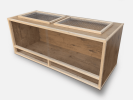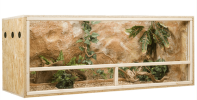Littleredfootbigredheart
Well-Known Member
Yeah try not to let them convince you the vitamin injections are necessary, they can honestly do more harm than good, vets very rarely understand that and how to appropriately treat tortoises, it can be tricky finding a good vet for them😣Thanks a lot! Its very helpful.
I will then talk to our vet one more time about those injections and see what he says.
Thanks

